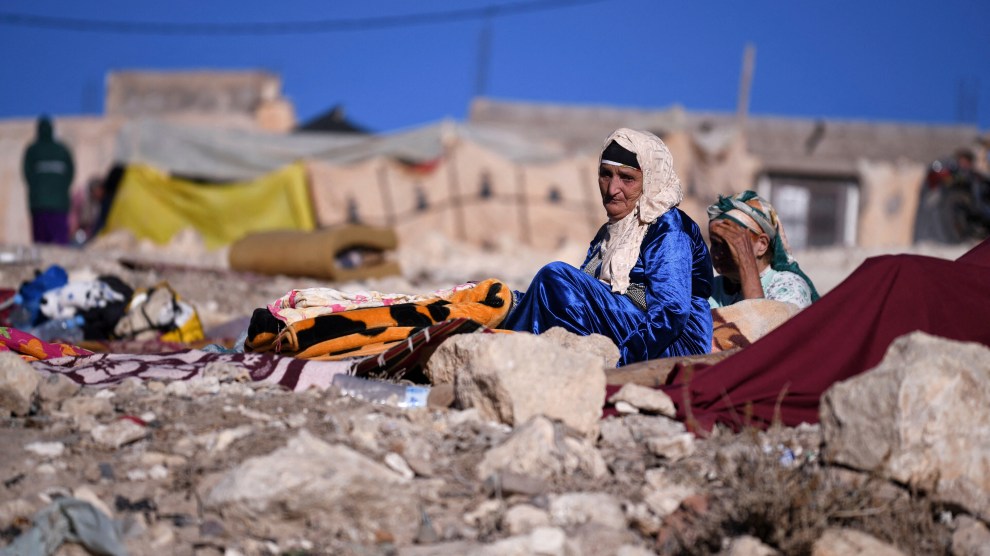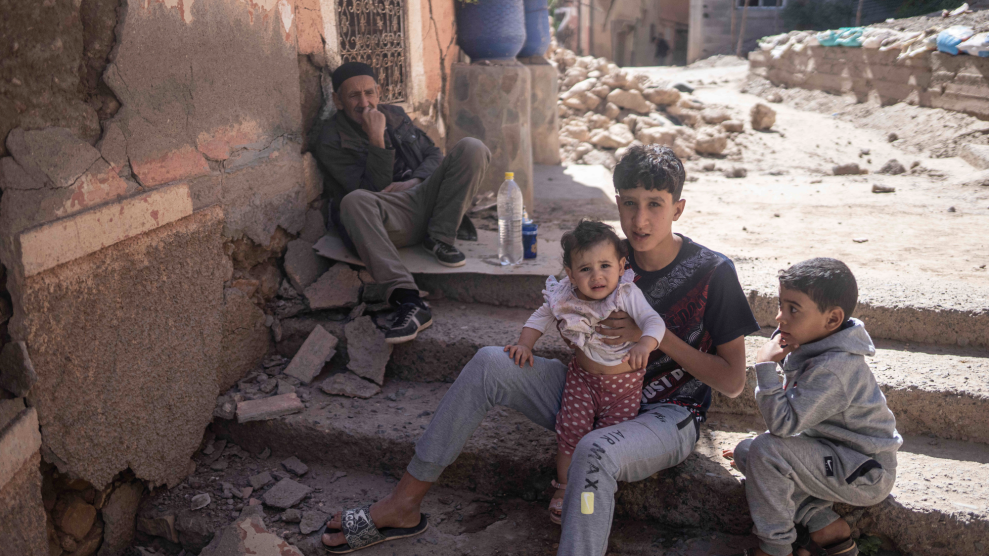
A woman cries in the rubble in Moulay Brahim, Al Haouz province, Morocco. Fernando Sánchez/Europa Press/Abaca/Sipa USA(Sipa via AP Images)
In Morocco, rescuers continued rushing to reach survivors in remote mountain villages on Sunday, after the worst earthquake to hit the region in a century killed thousands of people.
The 6.8-magnitude quake that struck on Friday has killed at least 2,100 people and injured another 2,400, according to news reports, with the death toll expected to keep climbing. The quake struck about 47 miles southeast of Marrakech, an ancient city and popular tourist destination, and was felt as far away as Portugal and Algeria.
On Sunday, Morocco’s army was deploying search-and-rescue teams and some international aid was on its way, but officials in several countries said King Mohammed VI had not yet formally requested outside assistance. “We’re just waiting for Morocco’s green light,” a European Union official told the Washington Post. The United States had sent a small team of disaster experts to assess the damage, according to Reuters, with bigger rescue teams ready to go.
President Joe Biden said in a statement on Saturday that he was “deeply saddened” by the loss of life and vowed that his administration is “ready to provide any necessary assistance for the Moroccan people.”
Some of the worst-hit towns, in the High Atlas Mountains, were only reachable by helicopter on Sunday, with no phone service or electricity and the roads blocked by debris. More than 300,000 people have been affected by the quake, according to the UN Office for the Coordination of Humanitarian Affairs. Videos posted to social media in Marrakesh showed people frantically fleeing as the city’s largest minaret swayed; others described buildings collapsing around them. In the mountains, residents in some villages have said no rescue teams have yet arrived to help them.
Some foreign governments—Tunisia, Qatar, and Spain, among others—were sending humanitarian and medical aid, while others said they were still waiting to hear from the king. “The moment, the second they ask, we will deploy,” French President Emmanuel Macron said on the sidelines of the G20 summit in India, according to the New York Times. Arnaud Fraisse, the founder of Secouristes Sans Frontières (Rescuers Without Borders), a nongovernment group, said Moroccan authorities were “completely blocking” some rescue teams. “We do not understand,” he told France Inter Radio, according to the Times.
Across Morocco, flags were lowered on Sunday as King Mohammed VI called for three days of mourning. A 3.9-magnitude quake rattled the Marrakesh-Safi region, likely an aftershock, raising anxieties. The International Federation of Red Cross said the next two days would be critical for rescuing survivors.
Here’s how to help Morocco recover from the disaster.


















